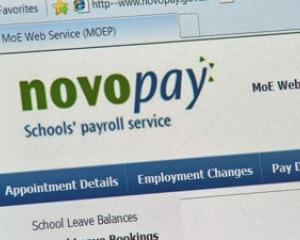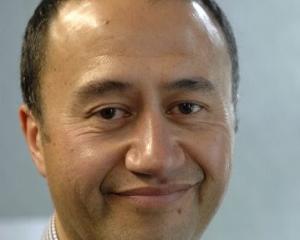She hopes her daughter Rowena German (8) will be among the 32 gifted and talented 7- to 10-year-olds from Otago schools selected for the Pakiki Kids programme, in which pupils will spend one day a week together away from their regular classrooms.
Already 10, her daughter Alice German is too old for the programme, but Ms Evans hopes she might be given an opportunity to participate later if plans to extend the programme to older children are successful.
The family belongs to the Otago Association for the Gifted and Talented and attends Creatability@OSM, a fortnightly weekend activities programme, which Ms Evans helps run.
Ms Evans said Dunedin was overdue for a school-based programme which would stimulate and challenge gifted and talented children.
"Schools do very well, but classes are too big to give gifted children the individual attention they need."
Some gifted children had many of the same issues as children with learning difficulties, including dyspraxia and short attention spans, she said.
"They have a different way of learning ... traditional school has its limits."
With substantial Ministry of Education cuts to funding for all gifted and talented education programmes, schools face an unfunded mandate to meet their National Administration Guidelines (NAG) requirements for gifted pupils.
In response to those challenges, a group of Dunedin principals, teachers and parents has been working for the past seven months to establish Pakiki Kids.
Steering committee member Susan Scharpf said the programme was being overseen by the Dunedin Gifted Kids Charitable Trust and was part of a nationally co-ordinated programme to provide gifted pupils with a curriculum designed especially for them, and a place where they could interact regularly with like-minded pupils and gain social and emotional support.
Initially, Pakiki Kids would educate 32 gifted and talented pupils in two classes. The sessions would be based at North East Valley Normal School.
Provided there was enough support and funding, the programme could eventually educate up to 64 pupils a week.
"Our research has shown there is quite high demand for places in the programme."
The trust was working with the National Gifted Kids Programme which would provide entry selection criteria, a specialised curriculum and professional development for teachers in gifted education.
The schools signed up to participate are Balaclava, Clutha Valley, East Taieri, George Street Normal, Kaikorai Primary, Macandrew Bay, Mornington, North East Valley Normal, Pine Hill, and St Leonards schools.
Ms Evans said schools and parents were aware they would have to subside the programme because ministry funding was unavailable. Funds were being raised to provide scholarships for families with limited means.
She said she was aware Rowena would have to be tested and interviewed and might not be awarded a place in the programme.
"I have explained to her that she might miss out ... someone else's need might be greater than hers."
• GIFTED CHILDREN
The following are some signs of giftedness:
- An early interest in surroundings.
- Super-sensitivity to surroundings.
- Strong curiosity and powers of observation.
- An extensive vocabulary.
- An exceptional memory.
- May talk early and fluently.
- The ability to read early - often self-taught.
- Can choose to concentrate for long periods.
- The propensity to ask shrewd or unusual questions.
- The ability to grasp ideas quickly.
- A quirky sense of humour.






